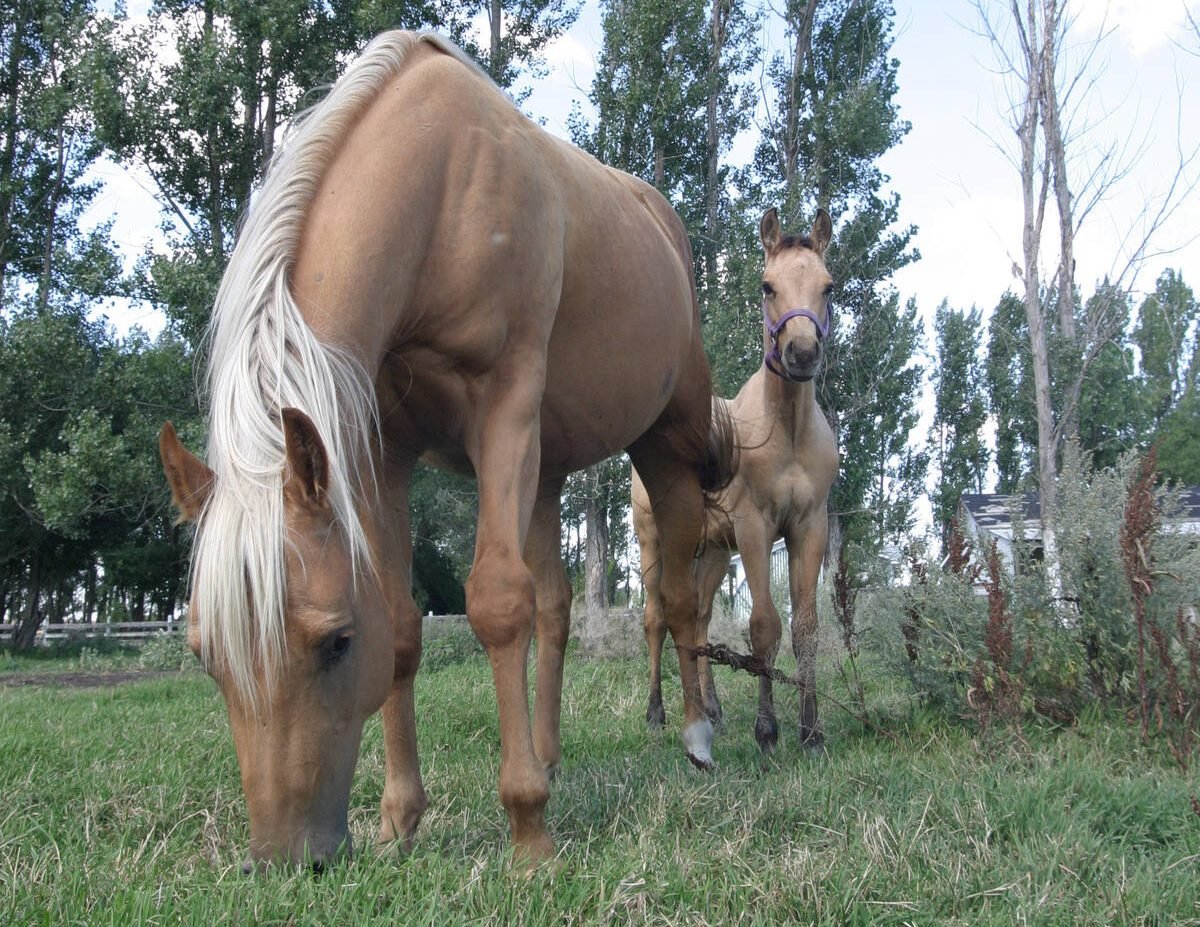Spending big dollars on a bull can be a sound investment, and this spring’s bull sale results showed a willingness to pay across all breeds.
Auctioneer and sales manager Chris Poley of T Bar C Cattle Co. markets a half dozen breeds and saw impressive results across the board.
“This spring there were more bulls over $100,000 than I ever heard of in my life,” he said.
“These kinds of bulls don’t come around every year in a program.”
No record prices were paid, but sales averages were steady with 2015, another stellar year.
Read Also

Growth plates are instrumental in shaping a horse’s life
Young horse training plans and workloads must match their skeletal development. Failing to plan around growth plates can create lifelong physical problems.
Most of the bulls went to other breeders or genetics companies.
There was also strong commercial interest, and although privately run bull sales led out bulls that fetched five and six figures, there was also a good offering of affordable cattle.
Market cattle prices have waned from last year’s records, but more commercial operators were willing to spend and upgrade their bull batteries this year. Poley said 95 percent of bulls probably go to commercial herds because buying better herd sires improves next year’s calf crop.
He sold the high seller at Wheatland Cattle Company’s annual bull sale at Bienfait, Sask.
“That is one program that consistently has the high selling sale for Simmentals in Canada,” he said.
The sale at the family operation owned by Vernon, Denise, Riley and Cody-Ray Lafrentz offered 30 Simmental bulls that averaged $19,833.
Wheatland Kill Switch 598C, a red purebred, could be Canada’s top bull price for 2016 at $210,000.
The bull was bought by Curtis Simmentals of Bethune, Sask., and a semen syndicate was formed to take advantage of its genetic package.
Kill Switch was a home raised bull, and its sire was Wheatland Circuit Breaker. The farm bought the dam from Texas, and this was its first bull calf.
Vernon Lafrentz described Kill Switch as “lots of bull,” which was muscular and phenotypically sound with good conformation and testicles.
“He was always a stand-out calf,” he said.
They did not keep him in their own herd because they already had bulls of similar breeding
“A bull of that caliber has to get out,” he said.
They have run their own bull sales for more than 10 years. Every spring there are dozens of sales representing all breeds and a variety of genetic programs. Lafrentz believes their bloodlines set them apart.
“Our pedigrees are fairly unique, and it is not everywhere you can buy the pedigrees we have,” he said.
They do not offer a female sale in the fall and keep their own replacements in the herd.
“To access the pedigrees, they have to buy the bulls,” he said.
- Lewis Farms of Spruce Grove, Alta., sold a Simmental bull for $150,000.
- Westway Farms of Didsbury, Alta., sold a Simmental bull for $135,000.
- Double Bar D Farms owned by Richard and Ken Dimler of Grenfell, Sask., sold a Simmental bull for $130,000.
- Sparrow Farms of Vanscoy, Sask., sold a Charolais bull that fetched $107,000.
- Darren and Joanne Unger, owners of U-2 Ranch at Coaldale, Alta., sold a red Angus bull for $103,000.















